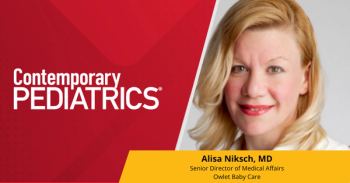
ACIP recommends meningococcal vaccine for high-risk infants
Children as young as 9 months who are at high risk for invasive meningococcal disease should receive quadrivalent meningococcal vaccine, according to a new recommendation from the Advisory Committee on Immunization Practices (ACIP) of the Centers for Disease Control and Prevention (CDC).
Children as young as 9 months who are at high risk for invasive meningococcal disease should receive quadrivalent meningococcal vaccine, according to a new recommendation from the Advisory Committee on Immunization Practices (ACIP) of the Centers for Disease Control and Prevention (CDC).
High-risk infants include those with complement component deficiencies, those in a risk group for a community or institutional outbreak, and those traveling to areas where meningococcal disease is epidemic or highly endemic.
The vaccine would be administered to infants aged 9 to 23 months in 2 doses 3 months apart.
Last April, the US Food and Drug Administration (FDA) approved Menactra (Sanofi Pasteur; Swiftwater, Pennsylvania) quadrivalent meningococcal vaccine for use in children 9 months and older. The other FDA-approved quadrivalent meningococcal vaccine, Menveo (Novartis; Cambridge, Massachusettsd), has not been approved for children younger than 2 years. Both vaccines protect against the disease caused by Neisseria meningitidis serotypes A, C, Y, and W-135.
The new recommendation was adopted at ACIP’s June meeting in Atlanta. ACIP also voted to include the updated guidance in the Vaccines for Children program. The recommendation becomes official when approved by the CDC’s director and published in Morbidity and Mortality Weekly Report.
American Academy of Pediatrics. Meningococcal vaccine OK for high-risk infants: ACIP. AAP News. June 23, 2011; doi: 10.1542/aapnews.20110623-1.
Newsletter
Access practical, evidence-based guidance to support better care for our youngest patients. Join our email list for the latest clinical updates.








